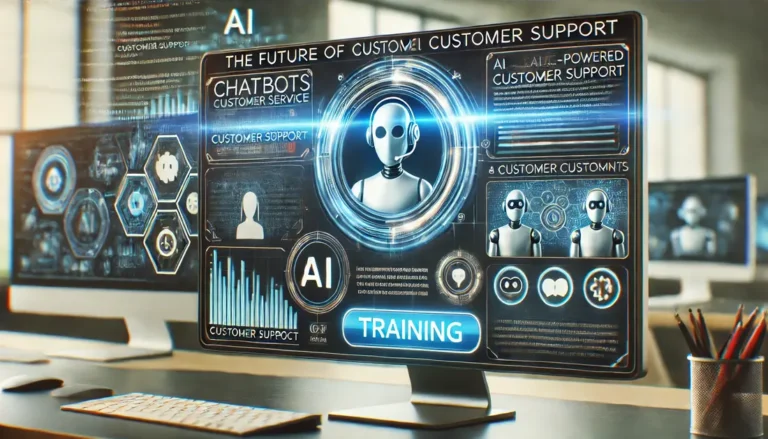AI agents are capable of performing tasks, making decisions, and learning on their own. From revolutionizing customer service with chatbots to optimizing logistics in supply chains, AI agents are reshaping industries at an unprecedented pace.
As we enter 2025, the need for professionals skilled in AI agents is growing exponentially. Whether you are a seasoned professional, a student, or someone pivoting their career, upskilling for AI agents is essential for staying competitive in the workforce of tomorrow.
This article will guide you through the journey of mastering AI agents, covering what they are, why they matter, the skills you’ll need, and actionable steps to upskill. By the end of this comprehensive guide, you’ll have a clear roadmap to becoming proficient in the technologies that are shaping the future.
What are AI Agents, and Why Are They Important?
AI agents are intelligent systems designed to perform tasks autonomously. Unlike traditional software, which relies on explicit programming for every function, AI agents can learn from their environment, adapt to new information, and make decisions based on predefined goals. For example, an AI agent can analyze customer queries, suggest personalized solutions, and continuously improve its responses over time.
The importance of AI agents lies in their versatility and efficiency. Industries ranging from healthcare to retail and finance are leveraging these systems to streamline operations, reduce costs, and improve decision-making. For example, in healthcare, AI agents can assist doctors by analyzing medical data and suggesting treatment options.
In retail, they can optimize inventory management and provide personalized shopping experiences. As these applications expand, the demand for skilled professionals who can build, deploy, and manage AI agents is skyrocketing.
Why Upskilling for AI Agents is Critical?
The rise of AI agents is reshaping the global workforce. By 2025, it’s expected AI will be deeply integrated into most industries, automating routine tasks and augmenting human capabilities. While this presents significant opportunities, it also poses challenges for those who lack the necessary skills. To stay relevant, professionals must adapt by acquiring expertise in AI agents.
Upskilling for AI agents is not just about career advancement; it’s about future-proofing your livelihood. With AI becoming a fundamental part of business operations, those who understand how to work with AI agents will be in high demand.
Whether you’re a developer, a data analyst, a marketer, or a business leader, mastering AI agents will set you apart from your peers and position you as a valuable asset in any organization.
Key Skills You Need to Master AI Agents
Mastering AI agents requires a combination of technical and soft skills. While the specific skills may vary depending on your role, here are the most important ones to focus on:
Programming and Development Skills
For those involved in building AI agents, proficiency in programming languages like Python, JavaScript, and R is essential. Python, in particular, is widely used for AI development due to its extensive libraries and frameworks, such as TensorFlow and PyTorch.
Developers should also understand how to design algorithms, train machine learning models, and integrate AI systems into larger software architectures.
Data Management and Analysis
AI agents rely heavily on data to function effectively. Professionals must be skilled in data collection, cleaning, and preprocessing to ensure that AI systems are trained on high-quality datasets.
Knowledge of database management systems, data visualization tools, and statistical analysis is also critical. Understanding how to identify and mitigate biases in data is another essential skill, as biased data can lead to flawed AI outcomes.
Cloud Computing and API Integration
Most AI agents are deployed in cloud environments, making cloud computing skills indispensable. Familiarity with platforms like Amazon Web Services (AWS), Google Cloud, and Microsoft Azure is crucial for deploying scalable AI solutions.
Additionally, many AI agents interact with other software systems through APIs (Application Programming Interfaces). Understanding how to work with APIs will enable you to integrate AI agents seamlessly into existing workflows.
Prompt Engineering and Interaction Design
For non-technical roles, prompt engineering is an increasingly valuable skill. Prompt engineering involves crafting effective instructions that guide AI agents to produce desired outputs.
This skill is particularly useful for tasks like content creation, customer support, and data analysis. Learning how to communicate with AI agents effectively will enhance your ability to leverage their capabilities, even if you don’t have a technical background.
Ethical and Regulatory Awareness
As AI becomes more prevalent, ethical considerations are becoming increasingly important. Professionals must understand the ethical implications of AI, such as data privacy, algorithmic bias, and accountability.
Familiarity with current and emerging regulations will help you navigate the complex legal landscape surrounding AI deployment.
How to Learn AI Agent Skills?
Upskilling for AI agents may seem daunting, but there are plenty of resources available to help you get started. Here are some effective ways to build your expertise:
Online Courses and Certifications
Online platforms like Coursera, Udemy, and edX offer a wide range of courses on AI and machine learning. For example, Salesforce’s Trailhead platform provides free courses on AI basics and advanced topics. Completing certifications in AI-related fields can also boost your credibility and make your resume stand out.
Hands-On Projects
Practical experience is essential for mastering AI agents. Work on small projects where you build or interact with AI agents. For example, you could create a chatbot, develop a recommendation system, or use AI tools to automate a task. Hands-on projects not only deepen your understanding but also provide tangible proof of your skills to potential employers.
Joining AI Communities
AI communities are excellent resources for networking and knowledge sharing. Participate in forums, attend webinars, and join hackathons to connect with like-minded individuals. Engaging with these communities will help you stay updated on the latest trends and gain insights from experts in the field.
Leveraging AI Tools
If you’re not a programmer, you can still use AI agents effectively by learning to operate user-friendly tools. Platforms like ChatGPT, Jasper, and other no-code solutions make it easier to harness AI’s power without a deep technical background. Experimenting with these tools can help you understand their capabilities and limitations.
Overcoming Challenges in Learning AI Agents
Learning to work with AI agents comes with its challenges. Here are some common obstacles and strategies to overcome them:
Keeping Up with Rapid Technological Changes
AI technology evolves at a breakneck pace, making it challenging to stay updated. To address this, focus on mastering foundational skills that are unlikely to change, such as problem-solving, critical thinking, and basic AI principles. Once you have a strong foundation, you can build on it by learning new tools and techniques as they emerge.
Finding Credible Resources
With so much information available, it can be difficult to identify reliable resources. Stick to courses, books, and tutorials created by reputable institutions or industry experts. Avoid spreading yourself too thin by trying to learn from too many sources at once. Instead, choose a few high-quality resources and dive deep into them.
Applying Theoretical Knowledge
Many learners struggle to apply what they’ve learned in real-world scenarios. To overcome this, focus on practical applications. For example, volunteer for projects at your workplace or participate in online challenges that require you to build or use AI agents. The more you practice, the more confident you’ll become in your abilities.
Future Trends in AI Agents
As we approach 2025, AI agents are expected to become even more sophisticated and widespread. Here are some trends to watch:
Increased Autonomy
AI agents are becoming more autonomous, capable of handling complex tasks without human intervention. This shift will require professionals to focus on designing systems that can learn and adapt over time.
Integration with Emerging Technologies
AI agents are increasingly being integrated with other cutting-edge technologies, such as blockchain and quantum computing. These integrations will create new possibilities and challenges, making it essential for professionals to stay informed about developments in these areas.
Ethical and Regulatory Developments
As AI becomes more pervasive, there will be greater scrutiny on its ethical implications and regulatory frameworks. Professionals who understand these issues will be better equipped to navigate the challenges of deploying AI responsibly.
Conclusion
The rise of AI agents represents a paradigm shift in how we work, communicate, and solve problems. Skilling up for AI agents is not just a career move; it’s a necessity for thriving in a rapidly evolving world. By mastering the skills outlined in this article and taking advantage of the available learning resources, you can position yourself as a leader in this exciting field.
The future belongs to those who are prepared, and there’s no better time than now to start your journey into the world of AI agents. Take the first step today, and unlock a future filled with endless possibilities.





![The Ultimate Guide to Medical Call Centers [2024]](https://biglysales.com/wp-content/uploads/2024/08/The-Ultimate-Guide-to-Medical-Call-Centers-2024-768x439.webp)

